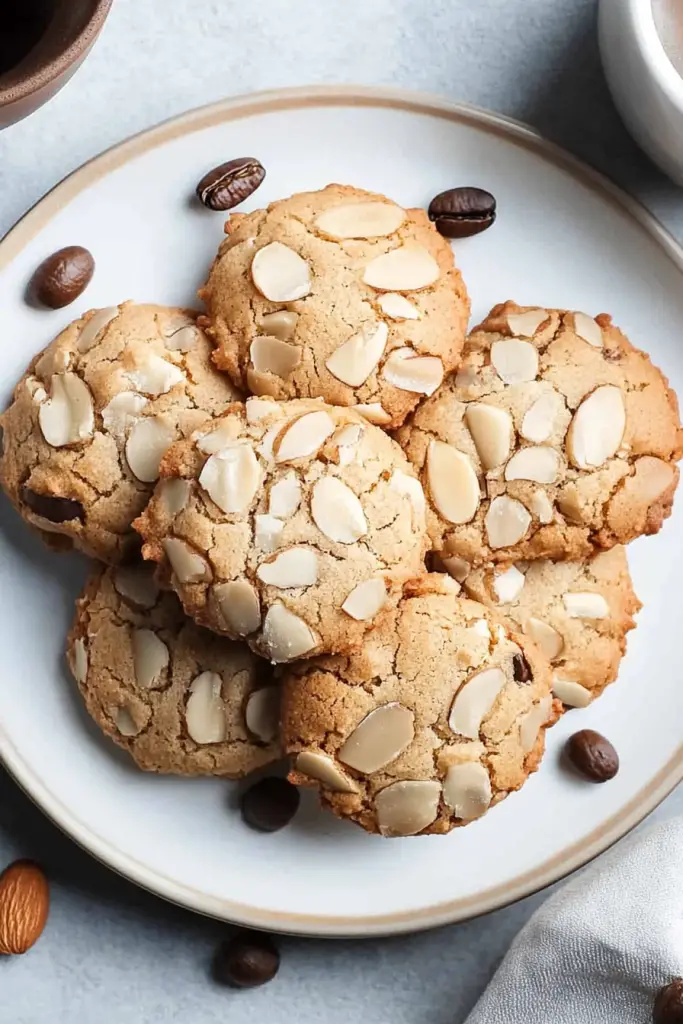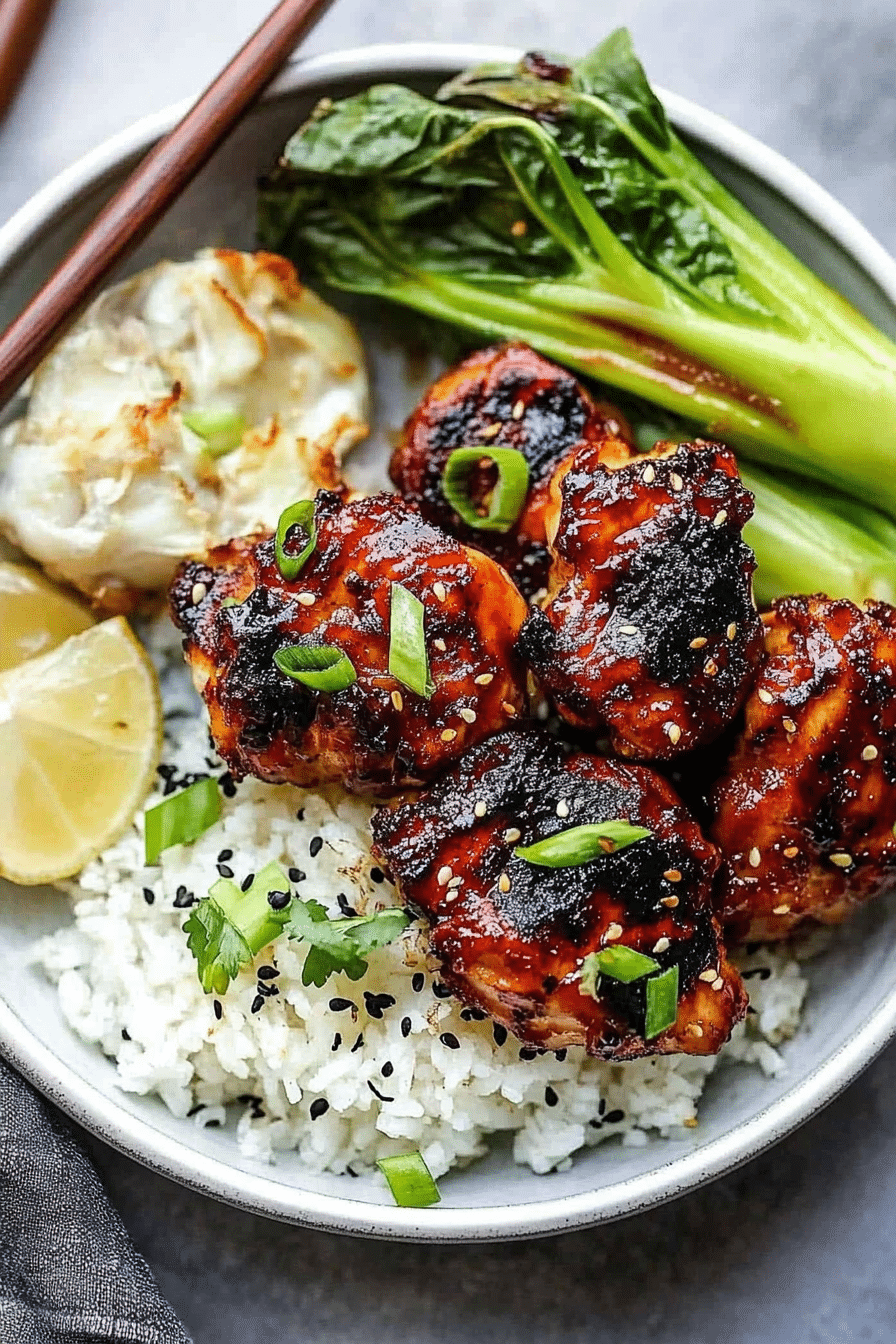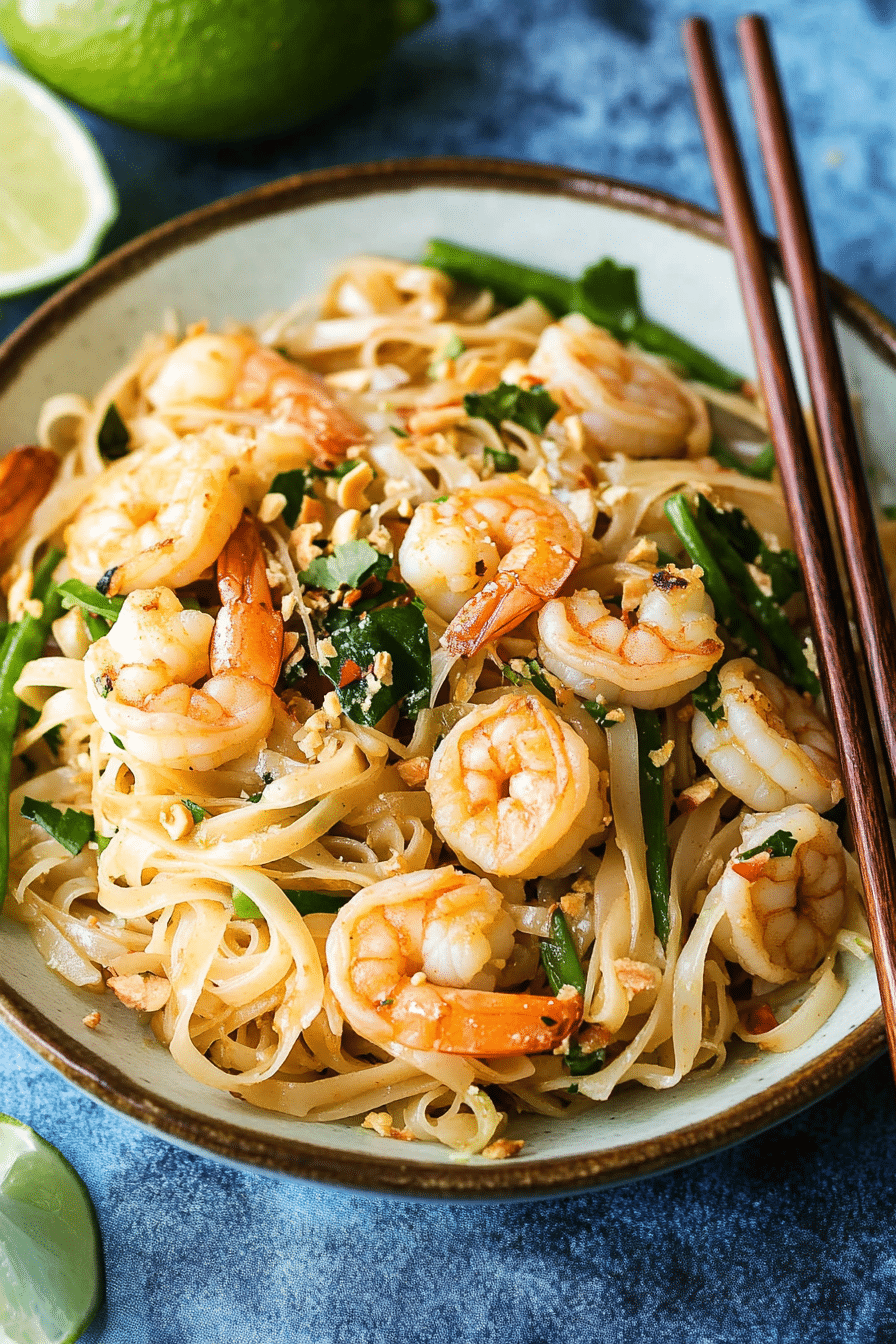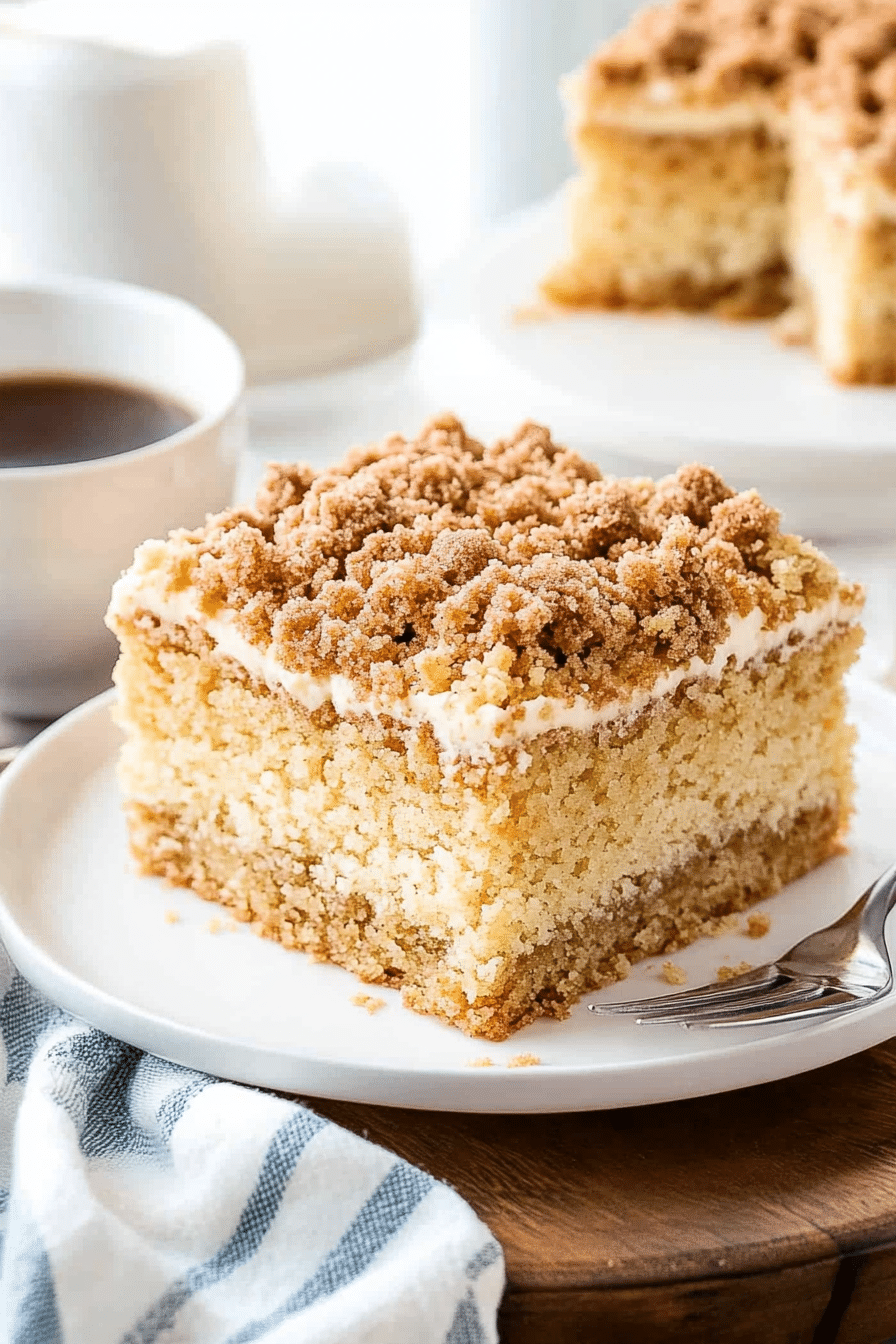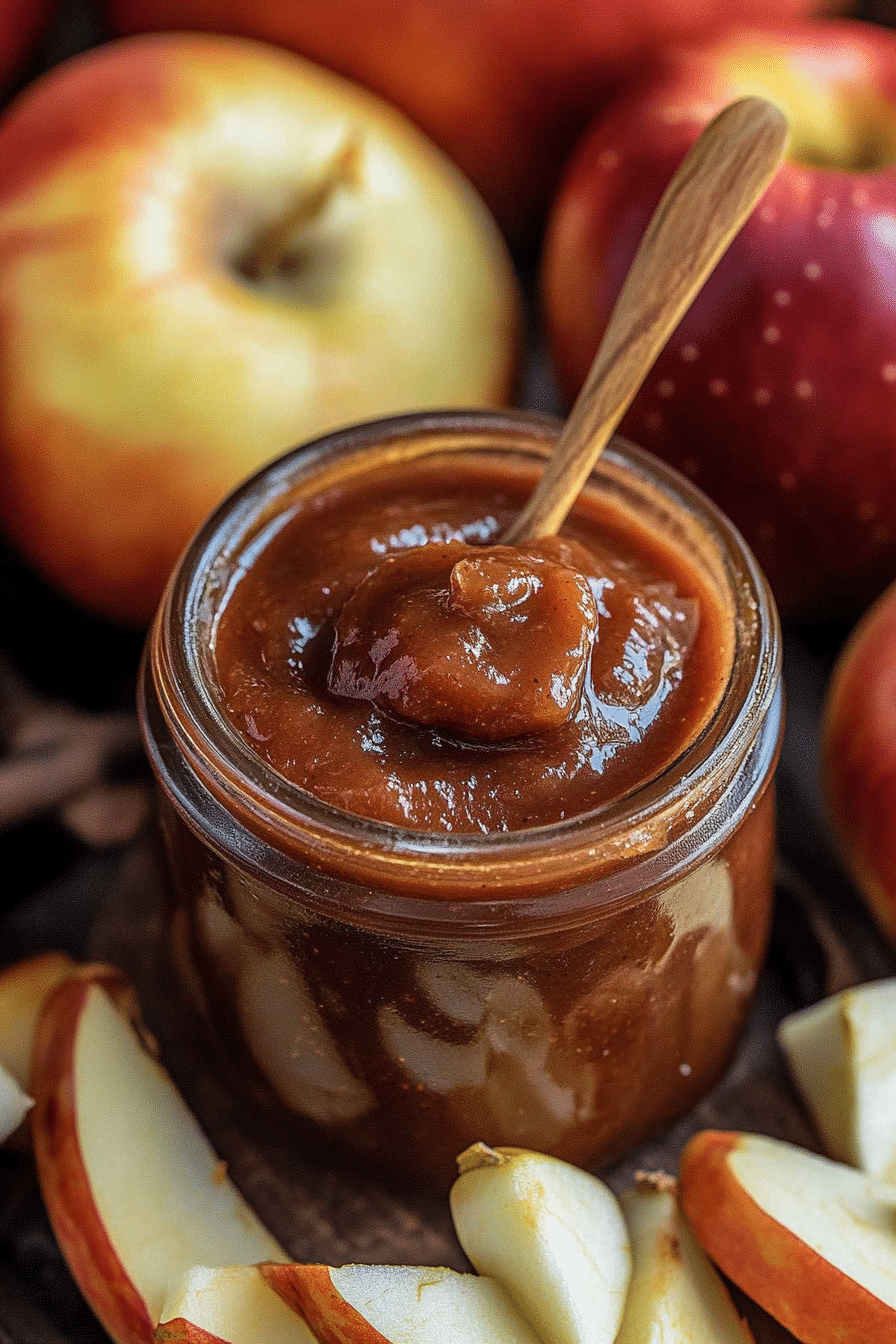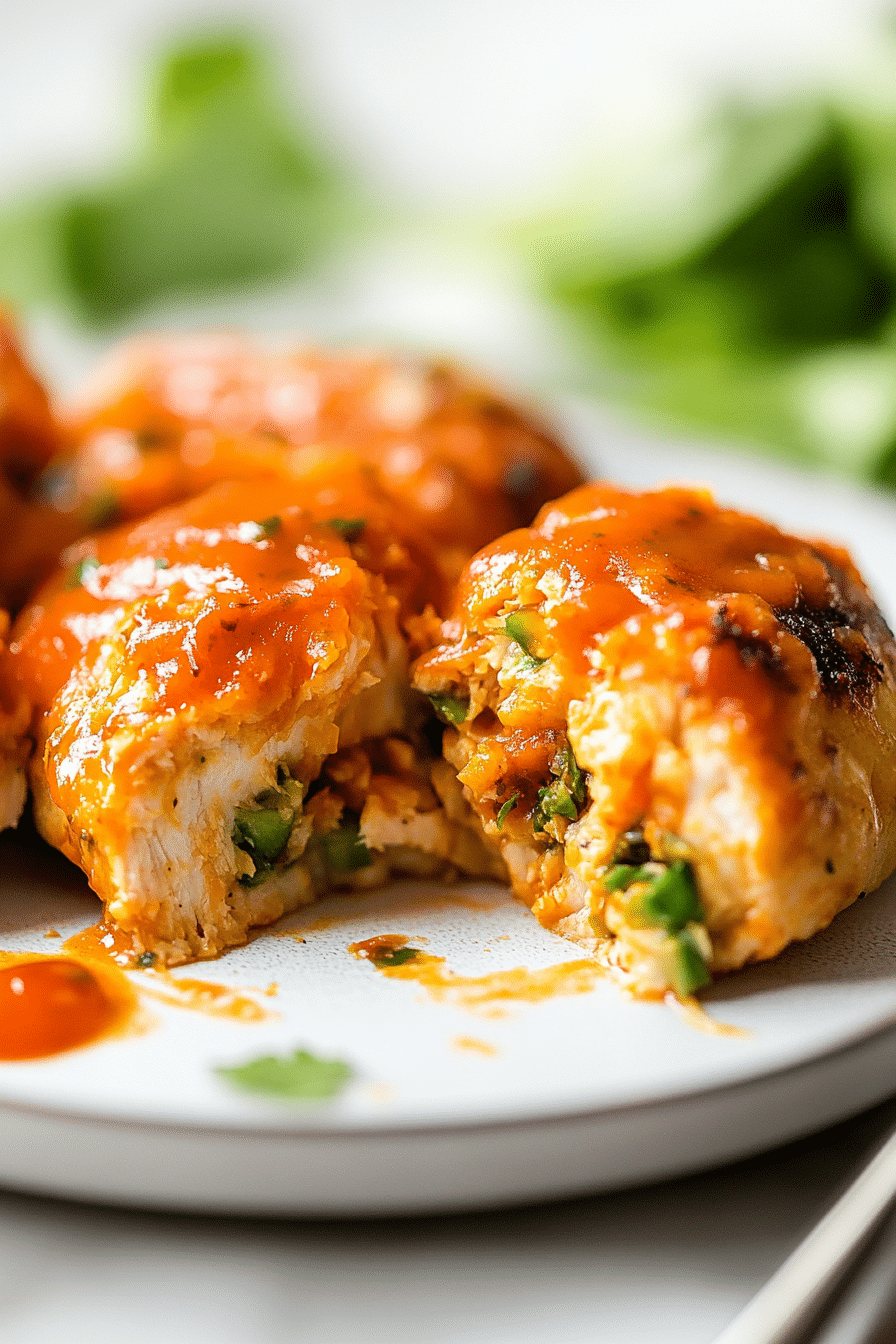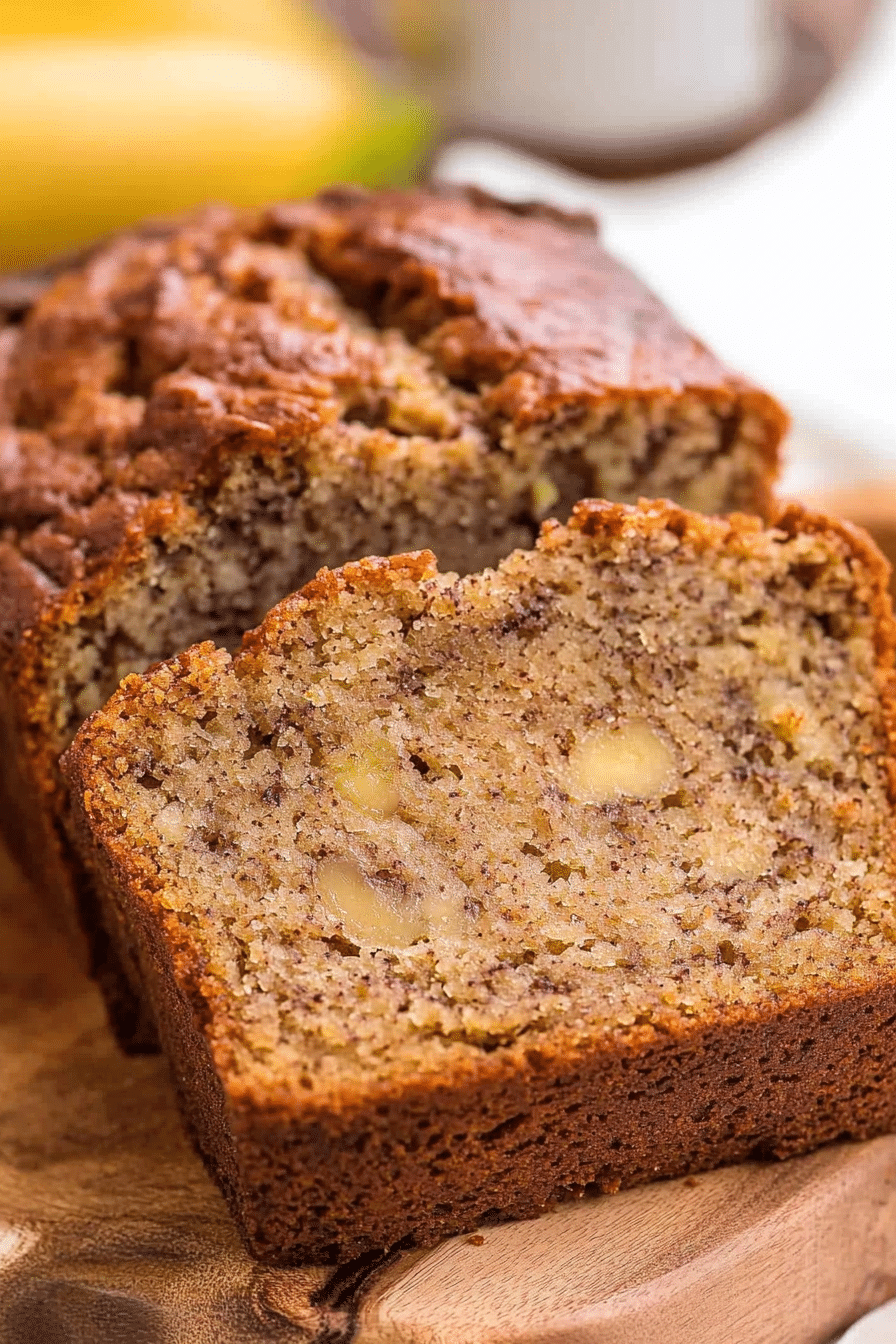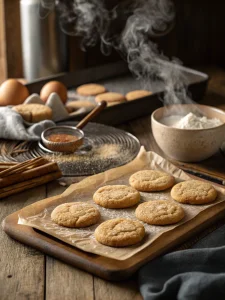I still remember my grandmother stirring a pot of coffee while the kitchen smelled faintly of toasted almonds and butter long before the sun finished yawning awake. That scent is where this all began—the moment I realized cookies could be both comforting and fast, a little treat that fits into real life, not just a glossy magazine layout. These gluten-free coffee Almond Cookies are my grown-up version of that memory: crisp edges, a soft center, and a whisper of coffee that nudges your taste buds awake without shouting. They pair with an easy mug of something hot and a chat with a friend, which is exactly how I like to live in the kitchen. I’ve baked these countless times, swapping flours and milks, and what always stays true is how quickly they disappear—this dish is a lifesaver on busy nights, a small but mighty batch that never fails to bring a smile. If you’re craving something sweet after a long day but don’t want to bake a cake, these little cookies are the answer, no fuss required.

What you’ll notice first is the way the aroma coats your kitchen—the almond toasty warmth with a hint of espresso. And yes, they’re gluten-free, which makes them forgiving for those nights when your pantry runs on surprise substitutions. I love how the texture teases both crunchy and tender at once, and there’s a sneaky little filling that makes these feel like a treat you’d chase down the street after school. If you’re new to gluten-free baking, this recipe is a gentle introduction: simple ingredients, straightforward steps, and a finish that feels a little magical without being fussy. I’ll walk you through every detail so you feel like you’re baking alongside a friend who happens to know all your favorite kitchen shortcuts. Grab a mug of coffee, friend—let’s bake a batch that tastes like a warm hello.
What is gluten free coffee almond cookie?
Think of Gluten-Free Coffee Almond Cookies as a sandwich-cookie hybrid with a coffee-kissed almond cream tucked between two delicate almond-honey cookies. It’s essentially a mash-up of steady, nutty cookie texture and a creamy, slightly caffeinated center that shines when you bite through to the filling. The name comes from the two stars of the show: Almond Flour, which keeps these cookies light and tender, and a gentle coffee note that elevates the almond flavor rather than masking it. It’s a compact, no-fuss dessert that delivers a big flavor punch—my kids actually request these by name after school, and my teenagers tell me they taste like a grown-up version of a favorite snack cookie. This is how I love to bake in a hurry: clean ingredients, a few smart substitutions, and a result that still feels special. It’s basically a tiny celebration in cookie form, and yes, gluten-free means everyone can enjoy it without worry.
Why you’ll love this recipe?
What I love most about Gluten-Free Coffee Almond Cookies is how forgiving they are—they look and feel fancy but come together with everyday staples. The flavor profile is a gentle balance: toasty almond, mellow coffee, and just a touch of sweetness that doesn’t overwhelm. The cookies stay tender inside when sandwiched with that coffee almond cream, and the glaze adds a little gleam and a whisper of espresso for that extra “oomph.” It’s also surprisingly budget-friendly: almond flour isn’t cheap, but you only use a modest amount, and the rest is simple pantry stuff that won’t break the bank. Versatility is a big win here, too. You can swap the fillings or test a glaze that leans more chocolatey or more citrusy, depending on what you’re craving. What I love most about this recipe is how easy it is to tailor on a weeknight without losing the cozy, baked-good magic. This recipe has traveled from my kitchen to friends’ kitchens, and I’ve watched it inspire quick bake-offs, thoughtful gifts, and school-day lunches that feel a little special. If you’re after a crowd-pleaser that still feels intimate, this is it.
How do I make gluten-free almond cookies?
Quick Overview
In just a handful of steps, you’ll transform almond flour, almond butter, and a splash of espresso into a delicate cookie sandwich with a creamy filling and a glossy glaze. The process is forgiving: you’ll mix dry ingredients, whisk wet ingredients, bring them together, chill briefly if you like, bake until lightly golden, then fill and glaze. The end result is a cookie that’s crisp on the edges, tender in the center, and a little decadent without being heavy. The beauty is in the balance—soft filling, crunchy bite, and the way the coffee aroma lingers long after you’ve finished a bite. This method keeps the kitchen calm and the cookies consistently delicious, time after time.
Ingredients
For the Main Batter:
- 2 cups almond flour, sifted for a light crumb
- 1/4 cup finely chopped almonds or almond meal for texture (optional)
- 1/3 cup light brown sugar, packed
- 1 tablespoon espresso powder (or finely ground coffee beans) dissolved in 1 tablespoon warm water
- 1/2 teaspoon baking soda
- 1/4 teaspoon salt
- 1/4 cup creamy almond butter (or your favorite nut butter)
- 1 large egg or 1 flax egg (for vegan option)
- 1 teaspoon pure vanilla extract
- 1–2 tablespoons unsweetened almond milk, as needed
For the Filling:
- 4 oz cream cheese or coconut cream (softened if dairy-free)
- 2 tablespoons powdered sugar (adjust to taste)
- 1 teaspoon instant espresso powder dissolved in 1 teaspoon hot water
- 1/2 teaspoon vanilla extract
For the Glaze:
- 1 cup powdered sugar
- 1–2 tablespoons strong coffee or espresso
- 1 teaspoon milk or almond milk (as needed) to reach pourable consistency
- Optional: 1 tablespoon cocoa powder for a mocha twist
Step-by-Step Instructions
Step 1: Preheat & Prep Pan
Heat your oven to 350°F (177°C). Line two baking sheets with parchment or silicone mats. If you like, chill your almond butter for a moment to help the cookies hold their shape—this little trick makes a big difference when you’re aiming for neat, sandwich-ready cookies. I always do this when I’m baking with almond flour because it helps with moisture balance and gives that lovely snap around the edges.
Step 2: Mix Dry Ingredients
In a medium bowl, whisk together almond flour, chopped almonds (if using), brown sugar, espresso powder, baking soda, and salt. The espresso powder will brighten the nutty notes, so don’t skip it—trust me on this one. Sift through the mixture if you can; the finer the dust, the more even your cookies will bake. This is where the warm, toasty aroma starts to build, and I’ll admit, I get excited every single time.
Step 3: Mix Wet Ingredients
In a separate bowl, whisk the almond butter, egg (or flax egg), and vanilla until smooth. If the almond butter is stiff, warm it for a few seconds in the microwave or on a warm stove top for easier mixing. Add the espresso-water mixture and a splash of almond milk, just enough to bring the batter into a cohesive, scoopable mass. It should feel slightly tacky but not gluey—if it’s too dry, add another teaspoon of milk; if it’s too loose, add a little more almond flour.
Step 4: Combine
Fold the wet into the dry until just combined. You don’t want to overmix here—gluten-free batters like to hurry up and get dense if you coax them too much. You’re aiming for a soft, cohesive dough that holds its shape when you scoop. If you see a few stray flour pockets, press them back into the dough with a spatula. This step yields the cookies’ delicate texture and prepares them for the filling later on.
Step 5: Prepare Filling
While the batter rests a moment, beat the filling ingredients together until smooth and silky. If you’re dairy-free, use coconut cream in place of Cream Cheese and a touch more vanilla to round out the flavor. You want a spreadable consistency that doesn’t ooze out when you bite. Taste and adjust the sweetness; I like a gentle sweetness here so the coffee and almond flavors can take center stage. If you can, refrigerate this filling for 15–20 minutes so it firms up slightly and becomes easier to pipe or spread between cookies.
Step 6: Layer & Swirl
Scoop even rounds of dough onto the prepared sheets—about 1 to 1 1/2 tablespoons each. If you’re feeling fancy, you can gently press a bit of the filling into the center of half the cookies to mimic a sandwich. For a pretty marbled effect, brush a few cookies with a tiny dab of the filling and swirl it with a toothpick to create a tiny coffee-kissed pattern that peeks through when you bite. This step is where you can let your personality shine—less precise means more homey charm, and that’s exactly the vibe of these Gluten-Free Coffee Almond Cookies.
Step 7: Bake
Bake 12–14 minutes, or until the edges are lightly golden and the centers look just set. The cookies will firm up as they cool, so resist the urge to bake longer for crisper edges—soft centers are part of the charm here and a big part of the filling’s proper hold. If your oven runs hot, start checking at 10 minutes and rotate the sheets halfway through to ensure even browning. When you pull them out, they’ll look a touch pale, but that’s intentional—the almond flour gives them this delicate, almost caramelized edge that’s irresistible.
Step 8: Cool & Glaze
Let the cookies cool completely on the pan for 5 minutes, then transfer to a rack. A warm glaze will melt the filling a bit, so wait until the cookies are fully cool before glazing. Whisk the glaze ingredients together until smooth; it should drizzle in a controlled way, not runny and thin. If you want, tint it with a touch of cocoa powder for a mocha finish. Drizzle a light lattice or a few elegant lines over half the cookies, or dip the top in glaze for a glossy look that tells you these are meant to be shared with friends over coffee.
Step 9: Slice & Serve
Now the fun part: assemble your Gluten-Free Coffee Almond Cookies. Pair cookies with a generous dollop of filling on all the bottom cookies, top with the match and press gently to seal. If you’re feeling playful, you can roll the edges in chopped almonds for an extra crunch. Slice them in half to create neat little sandwich cookies, or stack them as pretty little domes for a party tray. I love serving these with a bold cup of coffee or a creamy latte—the way the flavors mingle as you sip is exactly what makes these cookies feel special. They’re best the day they’re assembled, but they’ll keep beautifully in an airtight container for up to three days. If you must bake ahead for a dessert spread, you can freeze the formed cookies unfilled and only fill them once you’re ready to serve.
What to Serve It With
Gluten-Free Coffee Almond Cookies aren’t shy about pairing with a good cup of something hot, but they also shine in other moments. Here are a few ideas I’ve loved and tested in real life with friends and family:
For Breakfast: A small plate of cookies with a tall glass of almond milk and a quick espresso shot on the side makes a breakfast that feels like a treat but isn’t indulgent. The slightly toasty note from the almond flour complements a creamy latte and a bowl of berry yogurt. The cookie’s texture is sturdy enough to dunk without falling apart, which is a big win when you’re in a rush and still want something comforting.
For Brunch: Plate a few cookies with sliced pears, a sprinkle of chopped toasted almonds, and a wedge of citron-spiked Cream Cheese. The brightness from the citrus balances the coffee flavor, and the cookies still hold up as a decadent bite between sips of sparkling water or a light mimosa. You’ll hear “these are fantastic” more times than you expect, I promise.
As Dessert: A simple dessert scenario that never fails: two cookies with a swirl of filling, a thin glaze, and a dusting of cocoa or cinnamon. Serve with vanilla ice cream or a dollop of whipped cream for contrast; the heat of a fresh coffee or a black tea is the ideal companion. The aroma alone makes this a comforting finale to a weeknight dinner, and the gluten-free aspect means you can share it with guests who appreciate a thoughtful, well-made treat.
For Cozy Snacks: They’re perfect for a tea-time break or a late-night kitchen raid when you need something sweet but not too heavy. The almond’s richness glued together with the smooth filling makes them feel indulgent without requiring a full dessert course. My kids actually ask for seconds, which is basically the highest compliment a dessert can get in our house.
Top Tips for Perfecting Your Gluten-Free Coffee Almond Cookies
Here are some practical, real-life tips that have saved me more than a few ruined batches and helped me dial in the texture and flavor I crave:
Flour & Spices Prep: Sift almond flour well and consider a quick whisk with the rest of the dry ingredients to ensure even distribution. If you find the dough a touch dry, a teaspoon of extra almond milk softens it without making it greasy. Toasting a few extra sliced almonds and folding them in at Step 4 adds crunch and a deeper almond flavor that pairs beautifully with the coffee note. I learned this trick after a batch that tasted flat—toasting the almonds gave the profile a warm, toasty backbone.
Mixing & Texture: Don’t overmix the batter once you add the wet to the dry. Gluten-free doughs can become dense if you push them too far, so fold just until you see a cohesive mass. If you’re using a food processor, pulse briefly and then finish by hand; this helps maintain a light crumb and a tender center.
Filling Flexibility: You can swap in ricotta or mascarpone for a lighter, tangier filling, or use cream cheese dairy-free alternatives with a touch more vanilla to keep the balance. If your filling is too loose, stiffen it a bit in the fridge; if it’s too thick, whisk in a teaspoon of milk. I’ve found that a room-temperature filling blends more smoothly and makes for easier sandwich assembly.
Swirl & Pattern: For a pretty marbled effect, swirl a tiny bit of espresso into the cookie dough itself before portioning, or press a small amount of the filling onto the cookies before topping with the partner. The visual contrast is lovely on a plate and makes the cookies feel extra special when you bring them to the table.
Sweetness & Balance: If you prefer a less sweet treat, reduce the brown sugar by 1–2 tablespoons and increase the almond flour by a tablespoon or two to keep the dough from drying out. Conversely, if you want a touch more sweetness, add a pinch of salt to the glaze and a whisper of vanilla to the filling to keep the flavors balanced rather than competing.
Baking Environment: An oven thermometer is your best friend here. If your oven runs hot or cool, you’ll want to adjust by a few minutes to keep the centers tender. If you’re freezing the dough first, you’ll need a minute or two longer in the oven, and the cookies will come out more evenly shaped after chilling.
Glaze Variations: A simple glaze is delicious, but you can mix things up with a lemon zest glaze or a white chocolate coffee glaze. If you want a glossy finish that sets quickly, use a bit more sugar in the glaze and a touch of corn syrup substitute if you’re avoiding corn. The goal is a glaze that softly coats the cookie, not a hard shell that locks in moisture loss.
Lessons learned: I’ve burned a batch by overbaking and under-baking, but the thing I’ve learned most is to trust the centers. They’ll firm up as they cool, and the filling will set up even more once it’s chilled. Don’t panic if they look a touch underdone at 12 minutes—the magic is in the soft, chewy middle that remains beautifully tender after cooling. This is the kind of recipe that tastes better after you’ve shared it with someone you love and spent a little extra time chatting over coffee.
Storing and Reheating Tips
Good storage can make a good recipe feel like a weeklong friend. Here’s how I keep Gluten-Free Coffee Almond Cookies at their best:
Room Temperature: Store in an airtight container for up to 3 days. Keep them in a cool, dry spot away from sunlight to preserve the glaze and filling’s texture. If you’re stacking cookies, place parchment between layers to prevent sticking.
Refrigerator Storage: In a covered container, cookies last up to 1 week in the fridge. Bring them to room temperature before serving for the best texture and flavor release. The filling gains a more defined creaminess once warmed slightly, which is perfect for a quick afternoon treat.
Freezer Instructions: Assemble cookies and freeze on a tray, then wrap individually and store for up to 2 months. Thaw in the fridge overnight or at room temperature for a quicker option. You can also freeze unfilled cookies and fill them fresh when you’re ready to serve—this is my favorite method for entertaining guests on the fly.
Glaze Timing Advice: If you’re storing cookies unglazed, glaze just before serving for maximum shine and a fresh, glossy look. If you want to keep a glaze long-term, apply a thinner glaze and let it set, so the surface remains delicate and doesn’t crack with reheating.
These guidelines keep the cookies tasting bright and new, even after a few days. The almond and coffee flavors hold beautifully, and the texture stays tender if you follow the steps and give the centers a moment to rest after baking.
Frequently Asked Questions
Final Thoughts
These Gluten-Free Coffee Almond Cookies are the kind of recipe that makes me reach for the mixing bowl without hesitation—comforting, a little fancy, and wonderfully predictable in the best possible way. The almond flour keeps the texture light and tender, the coffee note gives it a cozy edge, and the creamy filling makes every bite feel like a tiny celebration. I’ve shared these with friends who are gluten-free by necessity and with family who simply loves a good treat, and they’ve all walked away with a smile and a memory. If you’re new to gluten-free baking, this is a perfect doorway: simple ingredients, a forgiving method, and a payoff that tastes like a warm hug. I’d love to hear how you customize yours—do you prefer a stronger espresso kick, a citrus-glazed finish, or a vanilla-forward filling? Drop a comment below, rate the recipe, and tell me about your tweaks. Happy baking, friend, and may your kitchen always feel like a welcoming hello.
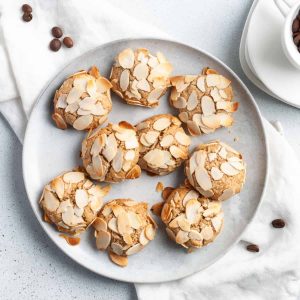
Gluten-Free Coffee Almond Cookies
Ingredients
Main Ingredients
- 0.5 cup unsalted butter softened
- 1 cup granulated sugar
- 1 large egg
- 1 teaspoon vanilla extract
- 1.5 cup all-purpose gluten-free flour blend
- 0.5 teaspoon baking soda
- 0.25 teaspoon salt
- 2 tablespoon instant espresso powder
- 0.5 cup chopped almonds
Instructions
Preparation Steps
- Preheat oven to 350°F (175°C). Line baking sheets with parchment paper.
- In a large bowl, cream together the softened butter and granulated sugar until light and fluffy.
- Beat in the egg and vanilla extract until well combined.
- In a separate bowl, whisk together the gluten-free flour blend, baking soda, salt, and instant espresso powder.
- Gradually add the dry ingredients to the wet ingredients, mixing until just combined. Fold in the chopped almonds.
- Drop rounded tablespoons of dough onto the prepared baking sheets, about 2 inches apart.
- Bake for 10-12 minutes, or until the edges are golden brown and the centers are set. Let cool on the baking sheets for a few minutes before transferring to a wire rack to cool completely.
Notes
Featured Comments
“Impressed! Clear steps and family favorite results. Perfect for busy nights.”
“New favorite here — super easy. crowd-pleaser was spot on.”
“Super easy and turned out amazing! My family asked for seconds. Saving this one.”
“This sweet treat was absolutely loved — the fresh really stands out. Thanks!”
“Made it tonight and wow — creamy! Will definitely make Gluten-Free Coffee Almond Cookies again.”
“Packed with flavor and so simple. Exactly what I wanted from Gluten-Free Coffee Almond Cookies.”


